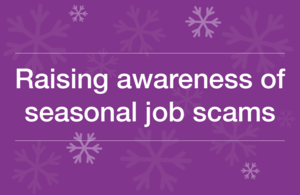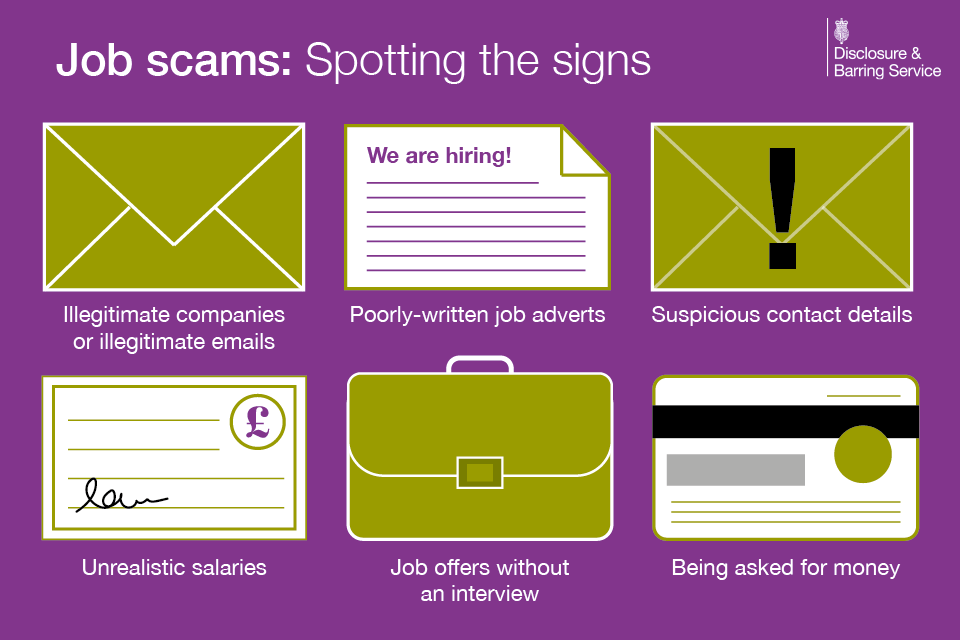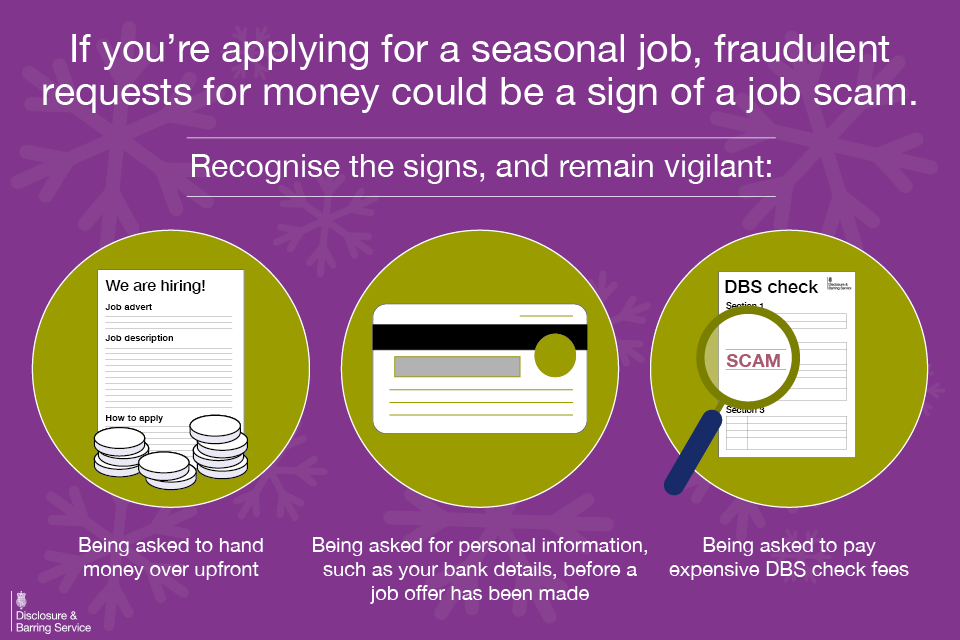DBS continues work with JobsAware to raise awareness of seasonal job scams
This campaign will look at seasonal job scams in the months leading up to Christmas, and how to avoid.

Earlier in the year, the Disclosure and Barring Service (DBS) launched a campaign to raise awareness of job scams and employment fraud among job seekers, alongside JobsAware – a non-profit organisation that informs people of how to avoid and report job scams and other unfair working practices.
With seasonal job scams predicted to increase in the lead up to Christmas, we’re now launching the next phase of this campaign, alongside JobsAware and Disclosure Scotland. This next phase will focus on:
- seasonal job scams in the months leading up to Christmas
- scams relating to money and fraudulent DBS checks
- how scammers orchestrate scams, and signs to be aware of
Seasonal job scams
In 2020, seasonal job scams increased by 88% compared to 2019. With the combination of furlough ending, and the impact of the pandemic leading to people looking for, or changing work, the number of seasonal job scams is likely to rise again in 2021.
Executive Director of Barring and Safeguarding at DBS, Dr Suzanne Smith, said:
Job scams happen all year round, but it is especially important to be alert to these scams during the festive period. The increase in seasonal and temporary jobs during this time is a perfect opportunity for scammers to try and take advantage of unsuspecting people. The impact of being victim to job scams can be utterly devastating and can ruin what should be a time of celebration and happiness.
Common signs of a job scam

If you recognise any of the signs above, remain vigilant, and don’t hand over money or personal information until you’re sure the job is legitimate.
If you suspect you have fallen victim to a job scam, or are being targeted, report the company and/or website to JobsAware via their portal.
Scams relating to money and fraudulent DBS checks

As detailed in the above graphic, being asked to hand over money upfront, being asked to pay expensive DBS check fees, or being asked for personal information such as bank details before a job offer is made, can all be signs of a scam.
Never part with money, or personal information until you’re sure a job is legitimate.
More information about fees for DBS checks, can be found on our website, here.
Some scammers may also ask you to apply for the wrong level of DBS check, as part of a scam. The DBS eligibility tool can be used to determine the type of check you may be eligible for, when applying for a role. If you have any concerns about the type of DBS check you’ve been asked to apply for, speak to your employer in the first instance.
How to report a suspected scam
If you believe you have been the victim of a job scam, or are being targeted, report the company and/or website to JobsAware via their portal.
Keith Rosser, CEO of JobsAware, said:
At JobsAware we have seen a massive rise in job scams over the last 12 months. 74% of applicants believe they have applied for a job that doesn’t exist, be that through fraud, data harvesting, or even unethical recruitment practices due to the staffing crisis. We want job seekers out there to know that JobsAware is here to highlight, protect and champion all worker rights – this includes gig economy, freelance and non-permanent workers. If you suspect you have been targeted, been the victim of a job scam, or have been treated unfairly, please report it via the JobsAware portal and we will do everything we can do ensure it doesn’t happen to others.
Further information
For more details on the campaign, or to speak to Dr Suzanne Smith of DBS, or Keith Rosser of JobsAware, please use the details below.
- Dr Suzanne Smith: DBSmedia@dbs.gov.uk
- Keith Rosser: Keith.Rosser@reed.com